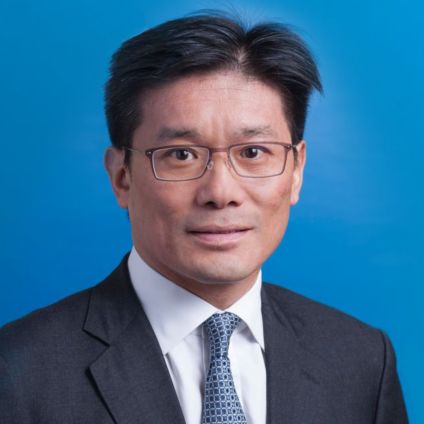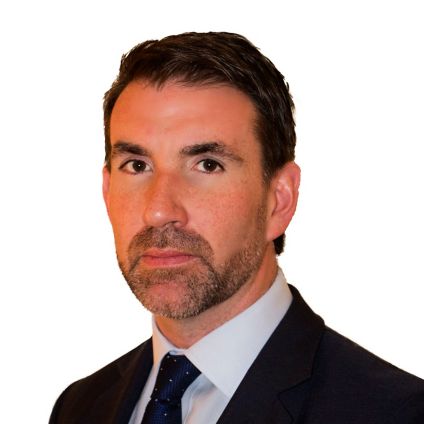-
About KPMG China
KPMG China has offices located in 31 cities with over 14,000 partners and staff, in Beijing, Changchun, Changsha, Chengdu, Chongqing, Dalian, Dongguan, Foshan, Fuzhou, Guangzhou, Haikou, Hangzhou, Hefei, Jinan, Nanjing, Nantong, Ningbo, Qingdao, Shanghai, Shenyang, Shenzhen, Suzhou, Taiyuan, Tianjin, Wuhan, Wuxi, Xiamen, Xi’an, Zhengzhou, Hong Kong SAR and Macau SAR. Working collaboratively across all these offices, KPMG China can deploy experienced professionals efficiently, wherever our client is located.
KPMG is a global organization of independent professional services firms providing Audit, Tax and Advisory services. KPMG is the brand under which the member firms of KPMG International Limited (“KPMG International”) operate and provide professional services. “KPMG” is used to refer to individual member firms within the KPMG organization or to one or more member firms collectively.
KPMG firms operate in 142 countries and territories with more than 275,000 partners and employees working in member firms around the world. Each KPMG firm is a legally distinct and separate entity and describes itself as such. Each KPMG member firm is responsible for its own obligations and liabilities.
KPMG International Limited is a private English company limited by guarantee. KPMG International Limited and its related entities do not provide services to clients.
In 1992, KPMG became the first international accounting network to be granted a joint venture licence in the Chinese Mainland. KPMG was also the first among the Big Four in the Chinese Mainland to convert from a joint venture to a special general partnership, as of 1 August 2012. Additionally, the Hong Kong firm can trace its origins to 1945. This early commitment to this market, together with an unwavering focus on quality, has been the foundation for accumulated industry experience, and is reflected in KPMG’s appointment for multidisciplinary services (including audit, tax and advisory) by some of China’s most prestigious companies.
Hedge Fund industry strategically poised to accelerate out of the pandemic, with product innovation and more tailored investor products top of mind
The hedge fund industry’s next chapter will be driven by the insights ascertained by hedge funds during the pandemic...
The hedge fund industry’s next chapter will be driven by the insights ascertained by...
- 49% of hedge funds have complemented their traditional investment strategies with private markets or other new products or strategies
- The investor relations function within hedge funds continues to grow in prominence with one third of all respondents expanding their investor teams.
- 79% of respondents are moving to some form of permanent hybrid working, although many have reservations about their new models.
- Regulatory compliance in a decentralised environment and changing global tax structures listed as key challenges by Asia Pacific funds for the coming year
The hedge fund industry’s next chapter will be driven by the insights ascertained by hedge funds during the pandemic around the capabilities of its people and its technologies, its important relationship with investors, as well as its unique cultures, according to new findings from AIMA and KPMG. These lessons allowed the industry to strategically adapt, pivot and thus position itself for the investment opportunities ahead. While the changes driving these strategy shifts all have implications on the business operating model, the industry is well positioned to address those challenges.
162 hedge fund managers, representing approximately $US1 trillion in AUM, were surveyed for the Global Hedge Fund Industry: Accelerating out of the pandemic report, which explores how hedge funds have pivoted to the new working environment brought by the onset of the COVID-19 pandemic.The survey questioned hedge funds on how they were approaching the challenges of operating in a decentralised and hybrid environment, including the long-term implications on technology and cybersecurity spend, data and talent management, and stakeholder engagement, among other topics.
Product innovation, encouraged by investor demand, is a top-of-mind concern for many managers and is propelling many of these to offer new forms of tailored investor products and also to enter new investment classes, specifically around private markets. Just under half (46%) of those surveyed predict hybrid hedge/private equity products to be the most popular in the next 12 months, with another 33% also pointing to private credit. Looking ahead to 2022, when asked what the chief concern of the coming 12 months was, regulation was cited by 42 percent of respondents.

Bonn Liu, Head of Asset Management, ASPAC, KPMG China,says:

Our research demonstrates that the hedge fund industry is continuing its agile and resilient journey by addressing the opportunities and challenges presented by product innovation and complexity, the impending compliance headwinds, and the continued search for talented people. At the same time, it is transforming its operating models for the hybrid working environment and is poised for its next growth phase in 2022 and beyond.

Compliance headwinds are expected to increase globally, the report suggests. Regulation is seen as the leading challenge for hedge funds over the next twelve months, with conflict among multi-jurisdiction regulators and compliance in a decentralised environment listed as top regulatory concerns among Asia Pacific fund managers surveyed ─ with roughly two-thirds (67%) of managers polled citing either of these two issues. New structures as a result of rising US corporate tax rates; transaction taxes and capital gains rates were mentioned as the biggest tax-related concerns among Asia Pacific funds in the coming year (mentioned by 62%, 52% and 48% of respondents respectively).

Darren Bowdern, Head of Alternative Investments, Head of Asset Management Tax, ASPAC, KPMG China, says:

Funds must come to grips with unfamiliar rulesets as they increasingly move into new investment classes, be that digital assets or private markets. Supervisors are ever more focused on the operational resilience of the sector – a reaction to the market stresses of COVID-19 – as well as the validity of firms’ sustainability claims in an era of huge growth in environmental, social and governance (ESG) investing. In addition, new operating models will introduce further considerations for compliance officers around people and data management in a decentralised working environment.”

In addition, the study found that almost a third (32%) of fund managers say they expanded their investor teams and increased their organisational importance as it pertains to capital raising and investor relations. Meanwhile, ESG is also expected to remain as a driving force for change, although hedge funds have currently paused from embracing this important product market trend further by a lack of global standards and actionable data.

Tom Kehoe, Global Head of Research and Communications, AIMA, says:

When we carried out the research for the annual report last year, the work focused on how hedge fund managers were coping with the economic devastation wrought by the pandemic. We found an industry agile and resilient in the face of massive market disruption. The findings from this year’s research describe an industry poised to accelerate out of the pandemic, with firms adopting new approaches to improve the efficiency of their business model and developing new investor solutions to deepen their alignment with investor clients.

- Ends -
About AIMA
The Alternative Investment Management Association (AIMA) is the global representative of the alternative investment industry, with around 2,100 corporate members in over 60 countries. AIMA’s fund manager members collectively manage more than US$2.5 trillion in hedge fund and private credit assets.
AIMA draws upon the expertise and diversity of its membership to provide leadership in industry initiatives such as advocacy, policy and regulatory engagement, educational programmes and sound practice guides. AIMA works to raise media and public awareness of the value of the industry.
AIMA set up the Alternative Credit Council (ACC) to help firms focused in the private credit and direct lending space. The ACC currently represents over 200 members that manage US$450 billion of private credit assets globally.
AIMA is committed to developing skills and education standards and is a co-founder of the Chartered Alternative Investment Analyst designation (CAIA) – the first and only specialised educational standard for alternative investment specialists. AIMA is governed by its Council (Board of Directors).
For more details go to www.aima.org
Media inquiries:
Gemma Ho
+852 3927 3171
gemma.ho@kpmg.com
Elle Lam
Hill+Knowlton Strategies
+852 2894 6296
elle.lam@hkstrategies.com
Connect with us
- Find office locations kpmg.findOfficeLocations
- kpmg.emailUs
- Social media @ KPMG kpmg.socialMedia